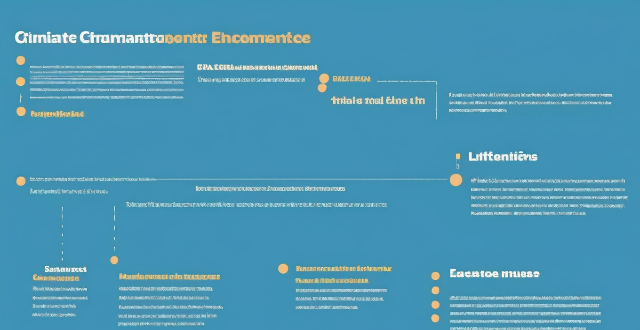Negotiating climate change agreements is a complex task that involves various challenges such as differing national interests, scientific uncertainties, political will and leadership, equity and justice, technical and financial capacity, and fragmented governance structures. Successful climate change talks require overcoming these challenges through collaboration, compromise, and a shared commitment to addressing the urgent threat of climate change.

Key Challenges Faced by Negotiators during Climate Change Talks
Negotiating climate change agreements is a complex and challenging task that requires diplomacy, scientific knowledge, and political will. Here are some of the key challenges faced by negotiators during climate change talks:
1. Differing National Interests
- Economic Concerns: Countries at different stages of development have varying economic priorities and concerns. Developed countries may be more focused on reducing emissions, while developing countries may prioritize economic growth and poverty alleviation.
- Energy Dependencies: Some countries rely heavily on fossil fuels for their economy and energy production, making it difficult to agree on measures that could impact these industries negatively.
2. Scientific Uncertainties
- Long-term Impacts: The long-term effects of climate change are still uncertain, which makes it challenging to negotiate specific targets and timelines for emission reductions.
- Mitigation vs. Adaptation: There is debate over whether resources should be allocated towards mitigating climate change or adapting to its inevitable impacts.
3. Political Will and Leadership
- Domestic Politics: Governments must balance domestic political pressures with international commitments, which can lead to compromises in negotiations.
- Leadership Vacuum: A lack of strong leadership from major emitting countries can stall progress in negotiations.
4. Equity and Justice
- Historical Responsibility: Developed countries have contributed more to historical greenhouse gas emissions than developing countries, leading to debates over who should bear the greater responsibility for action.
- Loss and Damage: There is a need to address the impacts of climate change already being felt by vulnerable communities, which requires acknowledgment of past harms and financial support for adaptation and recovery efforts.
5. Technical and Financial Capacity
- Technology Transfer: Developing countries often lack access to clean energy technologies, which they need to transition away from fossil fuels.
- Financial Resources: Financing mechanisms such as the Green Climate Fund aim to provide financial support for climate actions, but securing sufficient funds remains a challenge.
6. Fragmented Governance Structures
- United Nations Framework Convention on Climate Change (UNFCCC) Processes: The UNFCCC has established multiple bodies and mechanisms, leading to overlapping mandates and potentially confusing decision-making processes.
- Non-state Actors: Engaging non-state actors like cities, businesses, and civil society in climate governance adds complexity but also offers opportunities for innovative solutions.
In conclusion, successful climate change talks require overcoming these challenges through collaboration, compromise, and a shared commitment to addressing the urgent threat of climate change.